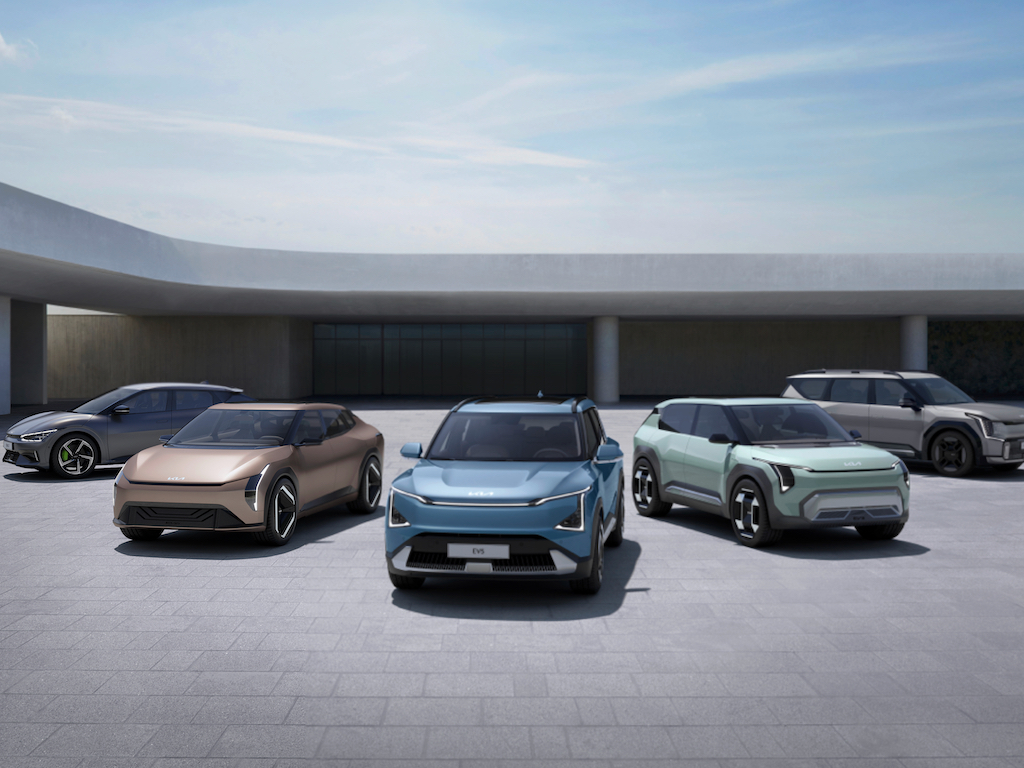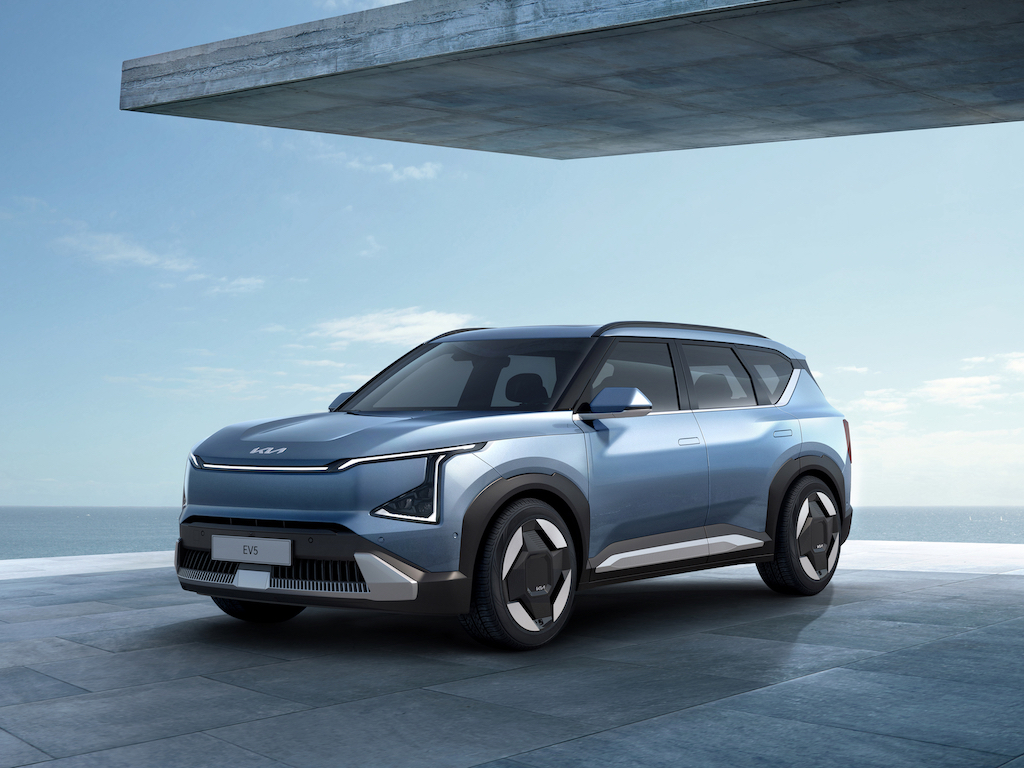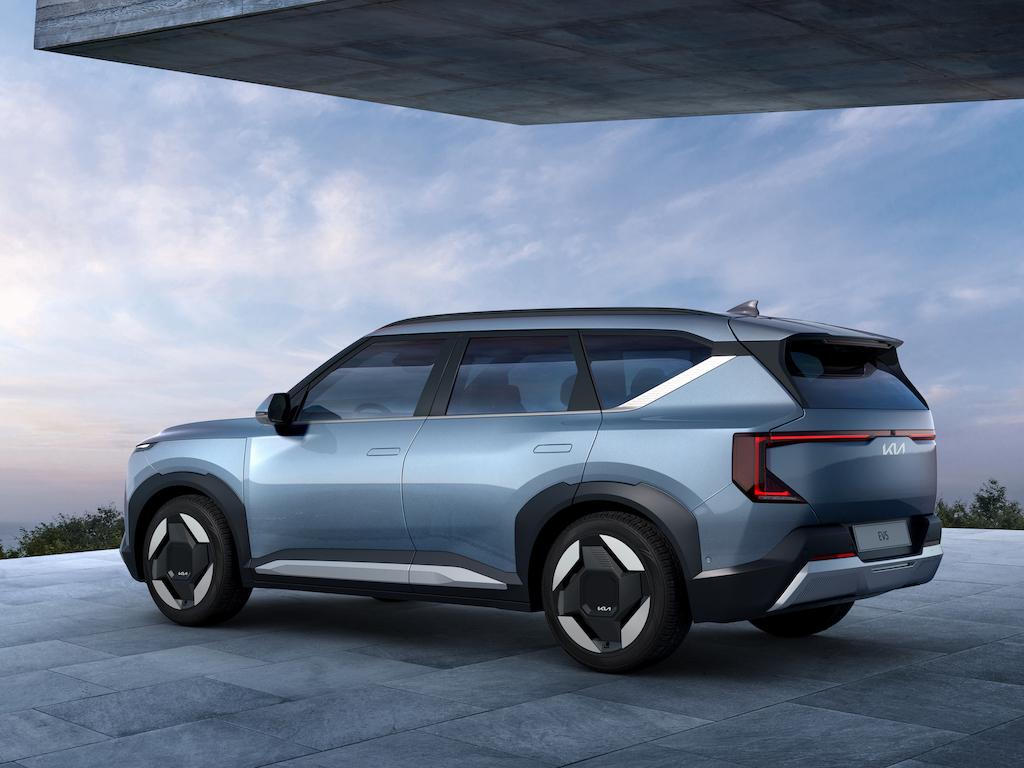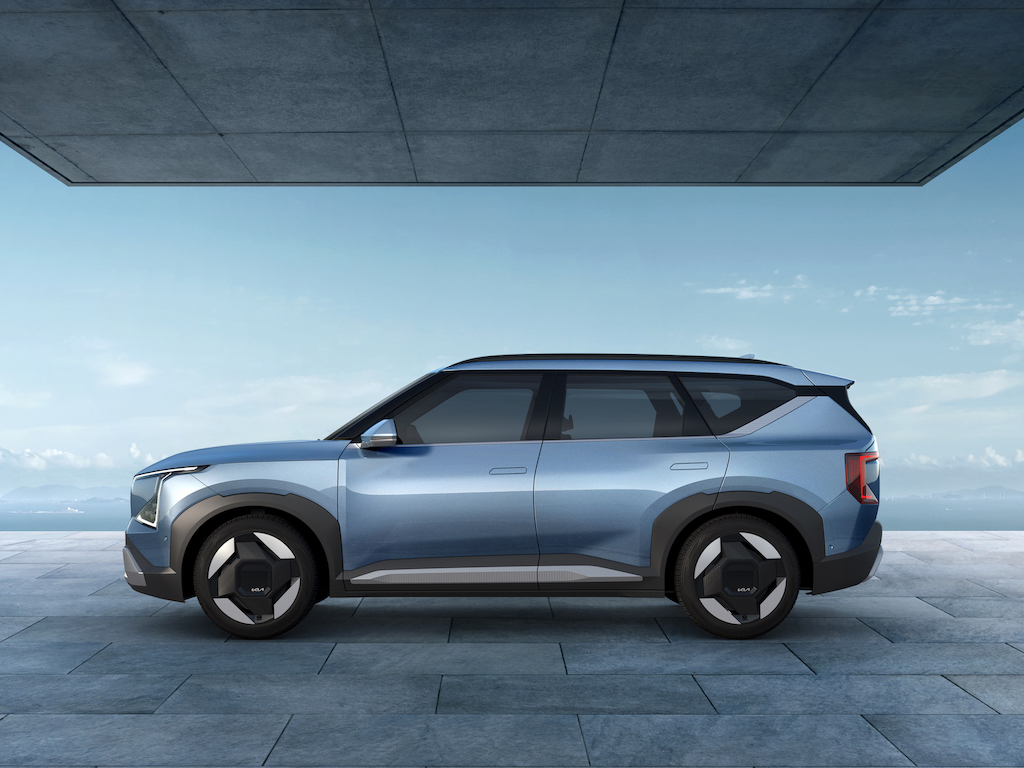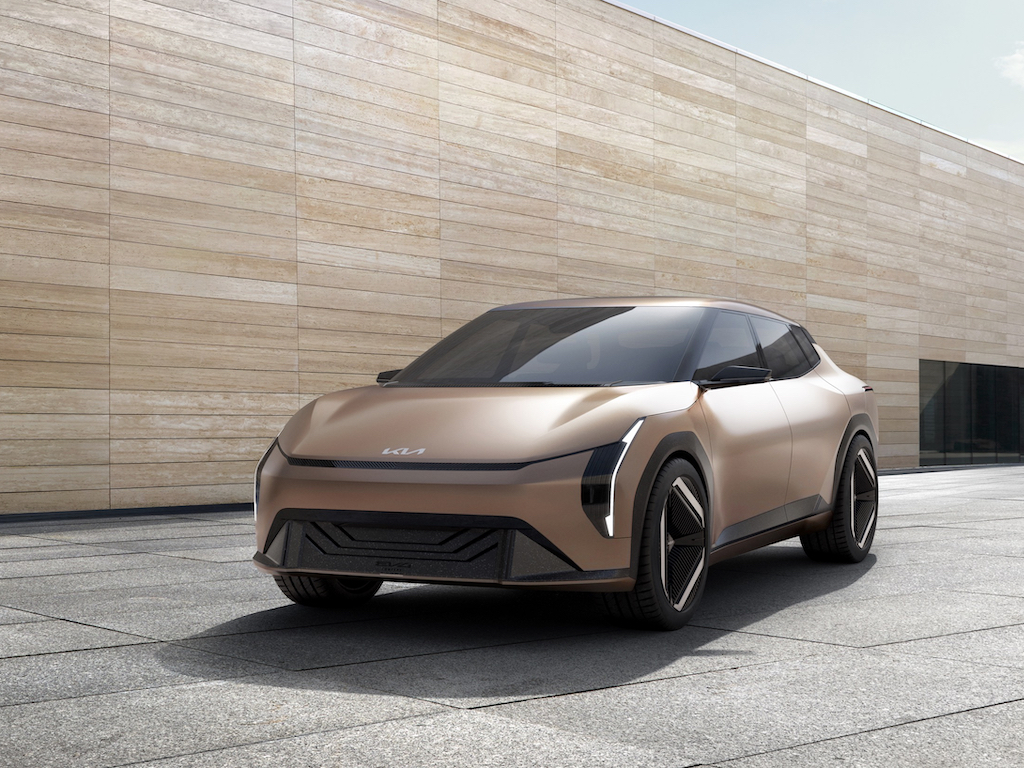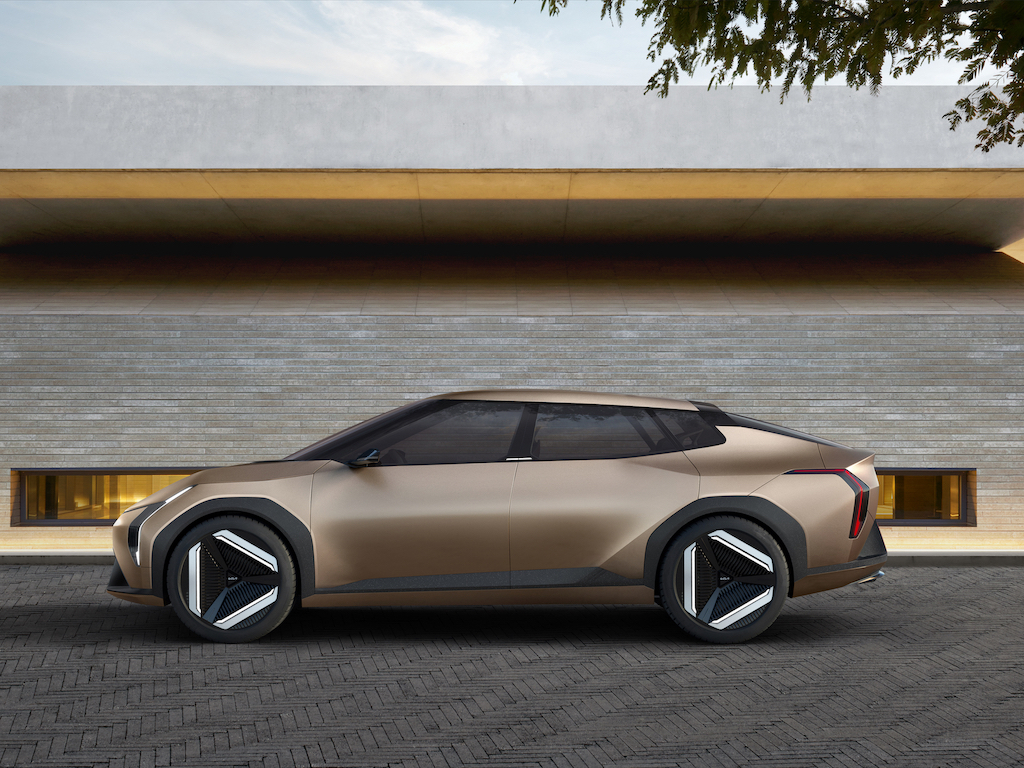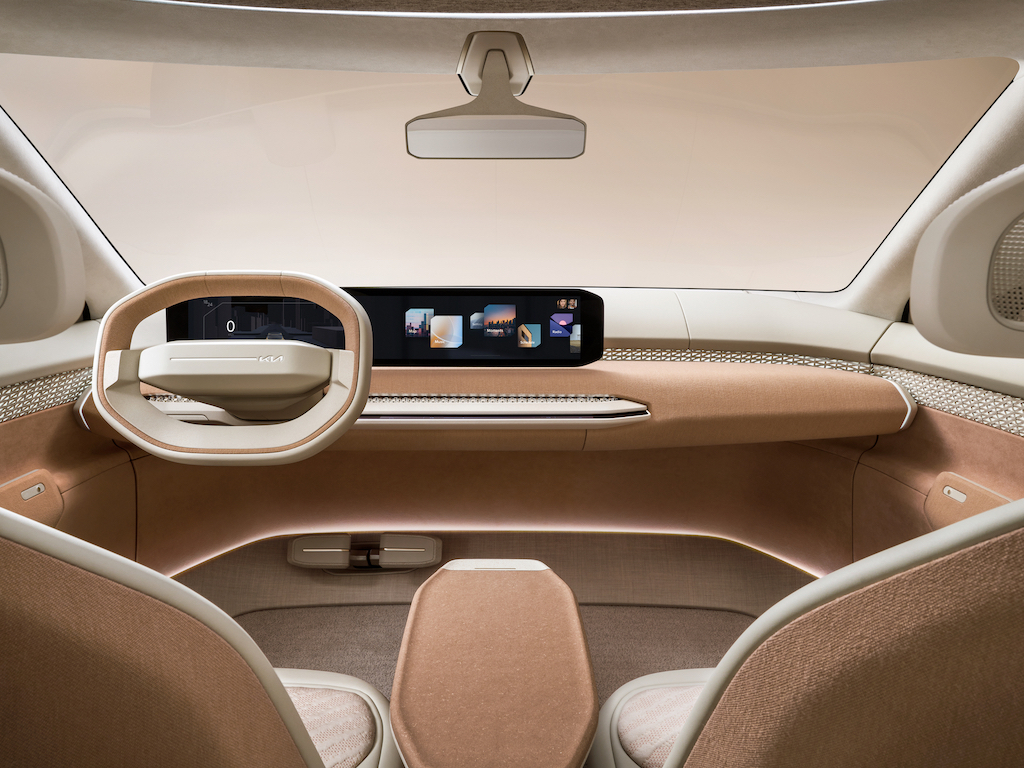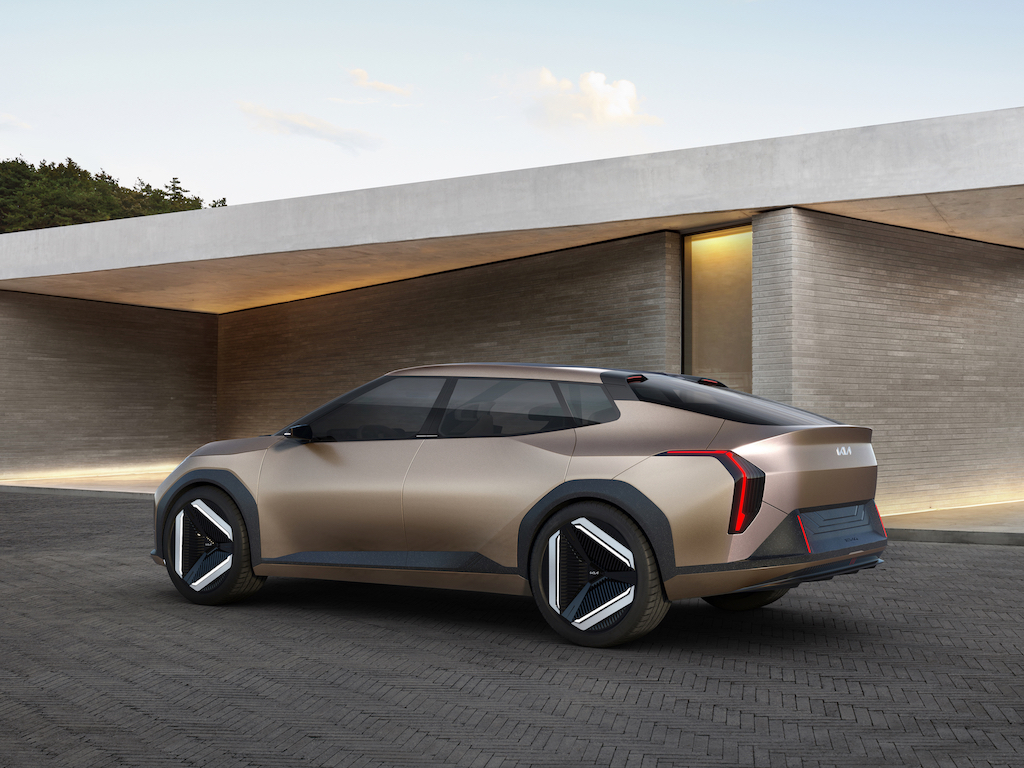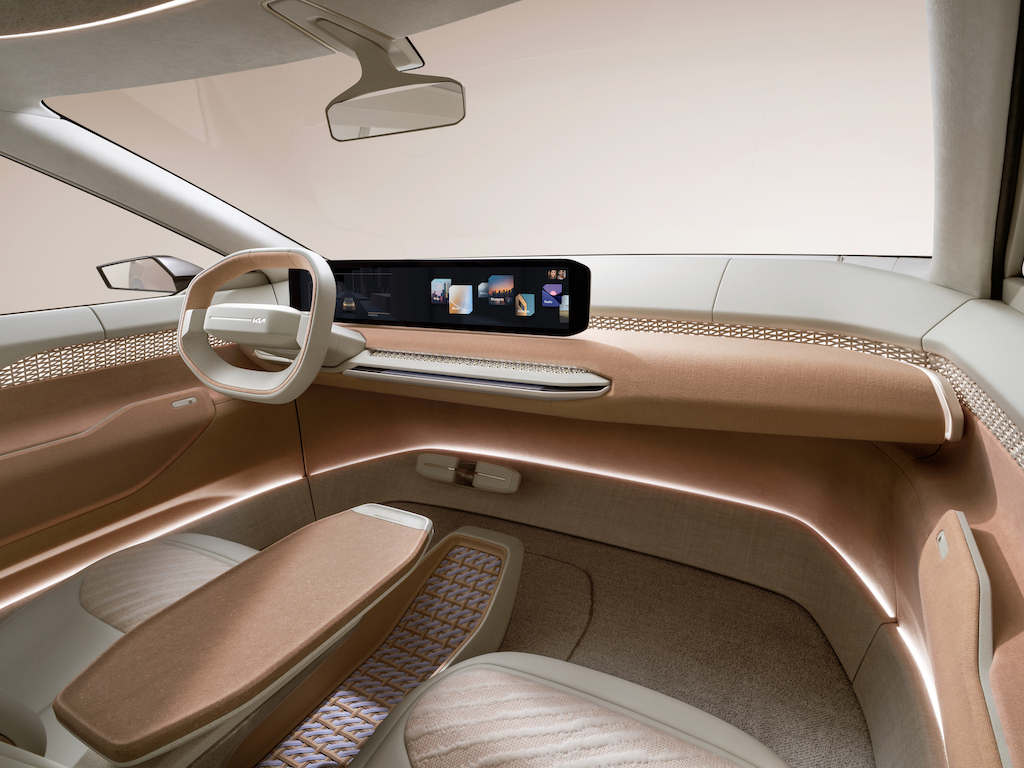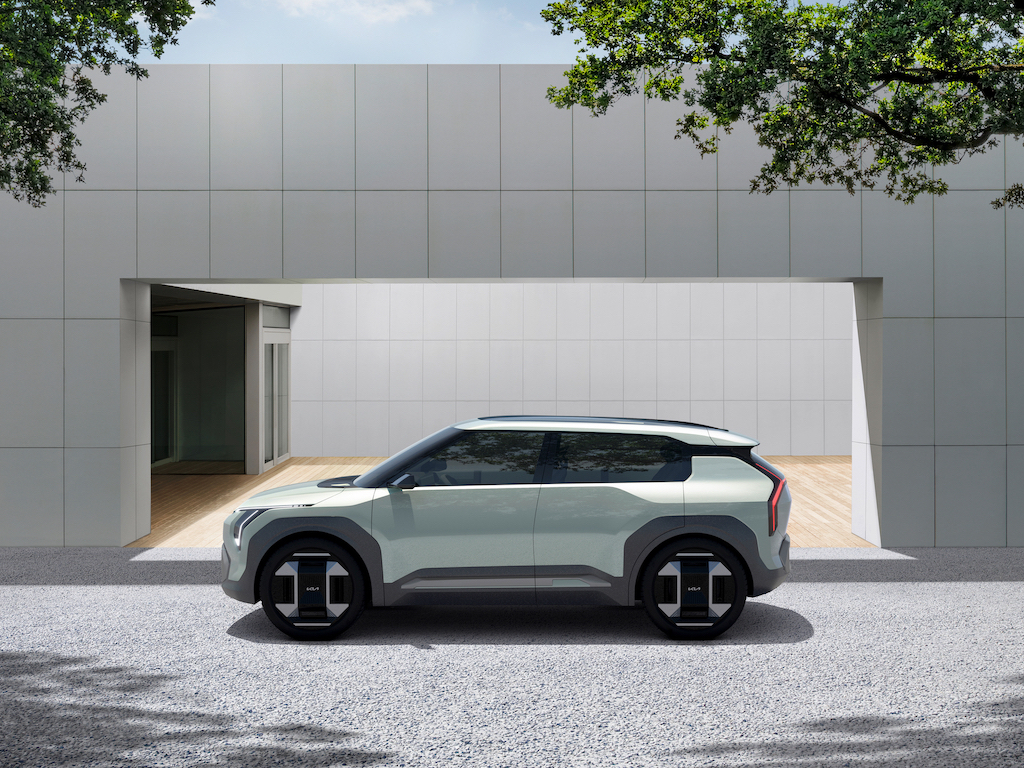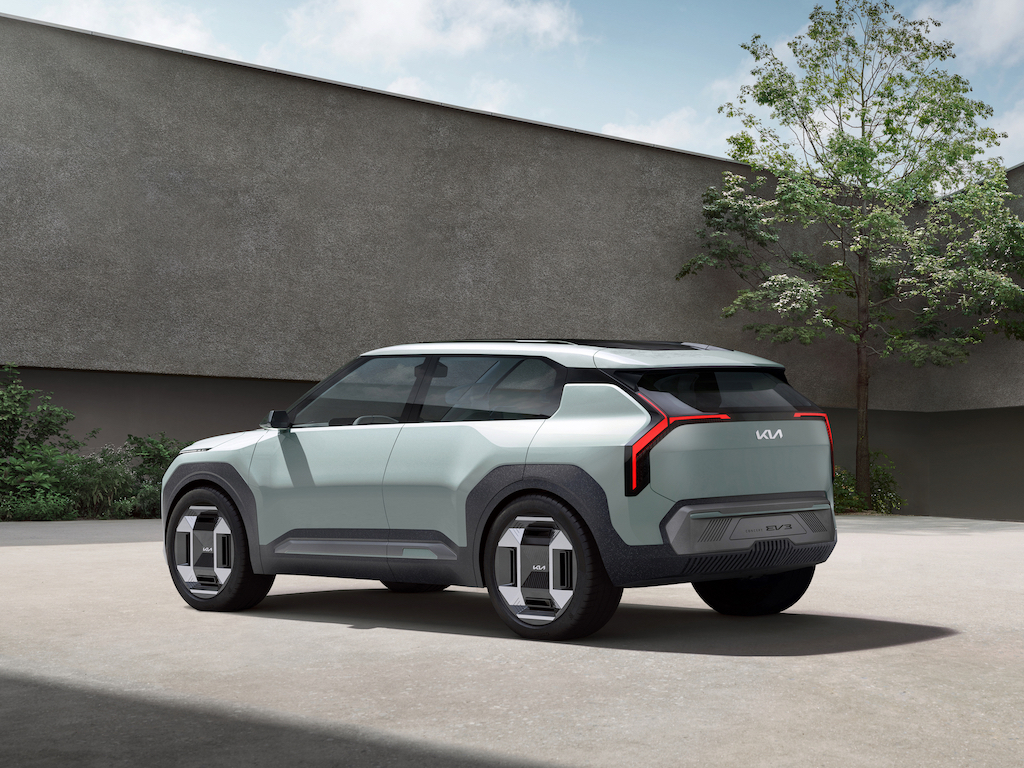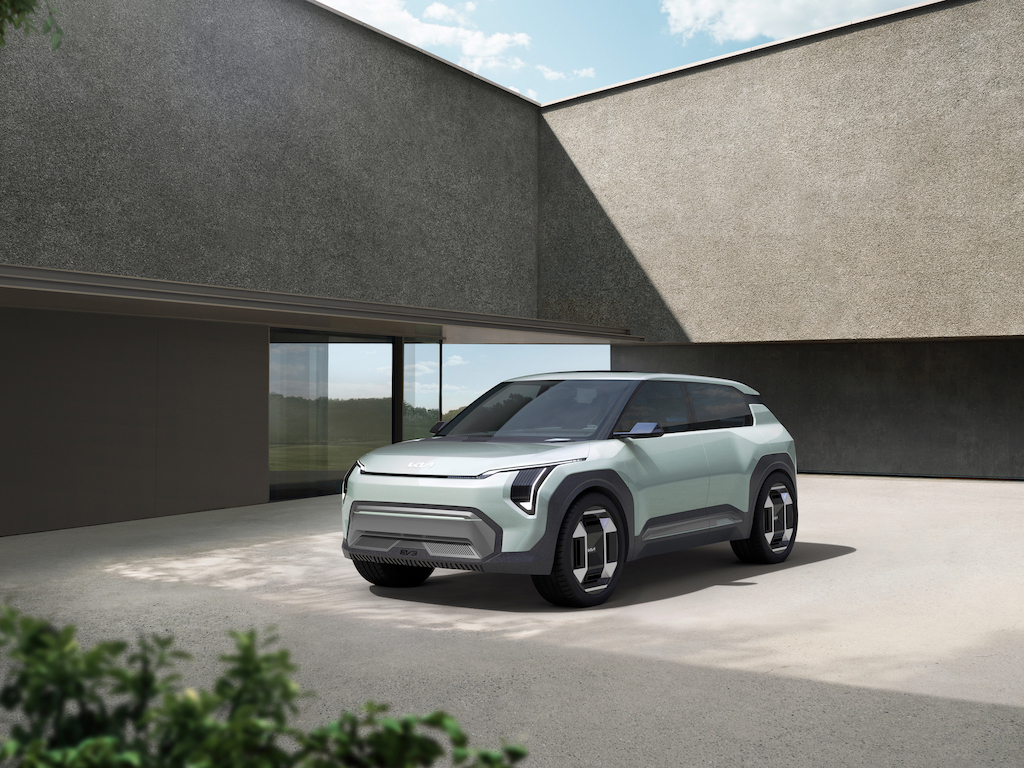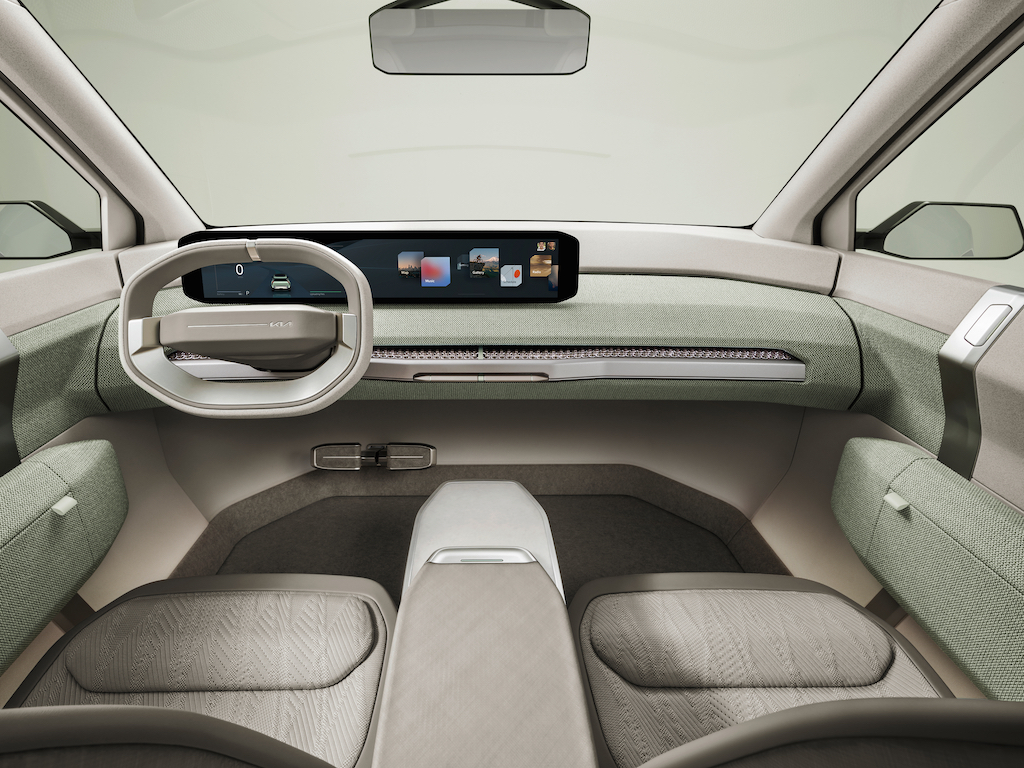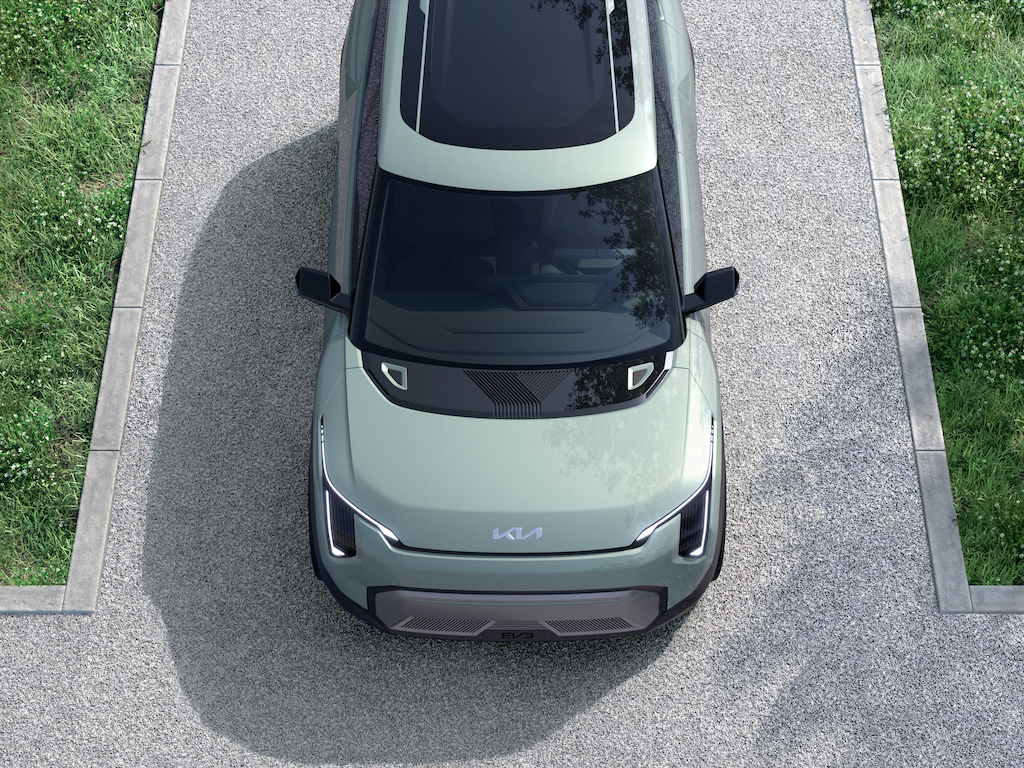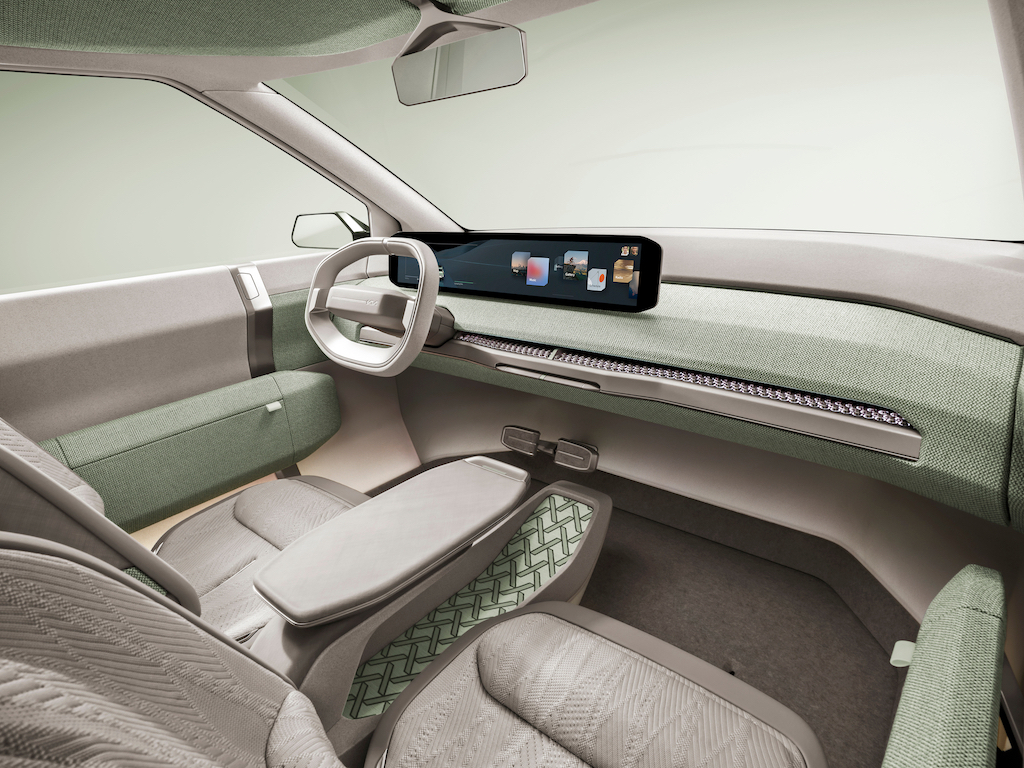Kia reveals global electric strategy, new EV5 and latest concepts at first-ever EV Day
Kia is significantly stepping up the pace on its electric stategy with the reveal of three EVs and new global plans at the brand’s first annual EV Day.
- Kia’s expanded EV line-up
- Kia EV5
- Kia EV5
- Kia EV5
- Kia Concept EV4
- Kia Concept EV4
- Kia Concept EV4
- Kia Concept EV4
- Kia Concept EV4
- Kia Concept EV3
- Kia Concept EV3
- Kia Concept EV3
- Kia Concept EV3
- Kia Concept EV3
- Kia Concept EV3
Underscoring the carmaker’s vision of ‘EVs for all’, the event in Korea revealed more details of the upcoming EV5 SUV while also uncovering its Concept EV3 compact crossover and Concept EV4 saloon– which will join the existing EV6 and EV9 to “offer more people greater options and access to EVs”.
And the EV Day – which will become an annual event for the firm to present its “progressive” EV strategy and vision for future mobility – also showcased its latest plans, aimed at improving customer convenience, reliability, and addressing common concerns, including charging infrastructure.
Ho Sung Song, president and CEO, said: “As a sustainable mobility solutions provider, Kia’s transition to electric vehicles is a must, not an option. By developing advanced EV technology, bold design, and intuitive services, and applying them to our entire EV line-up, our ultimate aim is to provide Kia’s unique value to as many people as possible. The acceleration towards electrification begins now.”
Kia’s goal is to achieve an annual sales target of one million electric vehicles by 2026, increasing to 1.6 million units per year by 2030, driven by its newly revealed products and initiatives.
The new arrivals include the EV5, uncovered in production form and marking the third dedicated battery electric vehicle in the brand’s line-up alongside the EV6 and EV9. It’s built on the E-GMP EV-dedicated platform that also underpins other Kia and Hyundai electric models and developed to combine “exceptional versatility and outstanding comfort with advanced technology, dynamic performance and pioneering safety”.
Production of the EV5 will take place in both China and Korea for local markets – its arrival in Europe hasn’t been confirmed yet. Three versions will be on offer: standard, long-range and long-range AWD, the latter with an expected range of 720km (447 miles) according to the China Light-Duty Vehicle Test Cycle (CLTC). The EV5 will also be available as a ‘GT’ with further features and higher performance, although specifics are yet to be revealed.
Thanks to the E-GMP platform, the electric SUV will also incorporate vehicle-to-load (V2L) and vehicle-to-grid (V2G) functions.
Kia also took the wraps off its Concept EV3 at the event – designed to deliver the benefits of the flagship EV9 SUV in a compact form “that’s both practical and joyful to drive”. The concept features a wraparound windscreen and disconnected C-pillar, along with a folding bench-type rear seat that can be folded up to store items such as electric scooters and bicycles. It’s expected to debut in 2024.
The presentation also featured the debut of the Concept EV4, which provides a new take on the electric saloon, shaped again by the brand’s ‘Opposites United’ design philosophy and featuring design elements intended to evoke sports and racing cars.
Expanding line-up and charging infrastructure to make EVs more accessible
Each EV model will help grow “the appeal and democratisation of EV models to an ever-broadening customer demographic”, according to the Korean carmaker.
Its expanding EV line-up will serve to make EVs more accessible to customers – the company is planning to develop a wide-ranging EV line-up priced from $30-80k (around £25-£65k / €28-75k) featuring existing models such as the EV6 and EV9, as well as future offerings tailored for the popular B- and C-segments. The brand aims to introduce smaller EVs such as the EV5, EV4, and EV3, with prices ranging from $35,000 to $50,000, to accelerate the widespread adoption of EVs.
In emerging markets with slower EV adoption rates, the initial launch will focus on the EV6 and EV9, with subsequent releases of strategic models including the EV5, EV4, and EV3. This approach aims to diversify product offerings and cater to various customer preferences.
It’s also working to establish a reliable system for EV production and battery supply, with a goal of expanding its global EV production facilities to a total of eight by 2025. In Europe, Kia will focus on the production of small- and medium-sized EVs, while in China, the emphasis will be on mid- to large-sized EVs. Strategically designed EV models tailored for emerging markets will be produced in India. Kia also plans to introduce a diverse range of EV models in North America, in response to the Inflation Reduction Act (IRA).
The brand is also actively establishing battery joint ventures to ensure a stable global battery supply system in sync with its global EV production network.
The brand has also unveiled plans to improve various customer experience offerings. This includes the arrival of the Kia App in the first half of 2024 – simplifying everything from initial vehicle research and test drives to buying a Kia and managing charging. The brand will also introduce new offline services at physical locations and provide customers with artificial intelligence (AI) services to enhance the in-vehicle experience.
Generative AI technology will debut in the 2024 EV3 model, with subsequent integration into the EV4 and EV5, and continuous enhancements via over-the-air updates.

